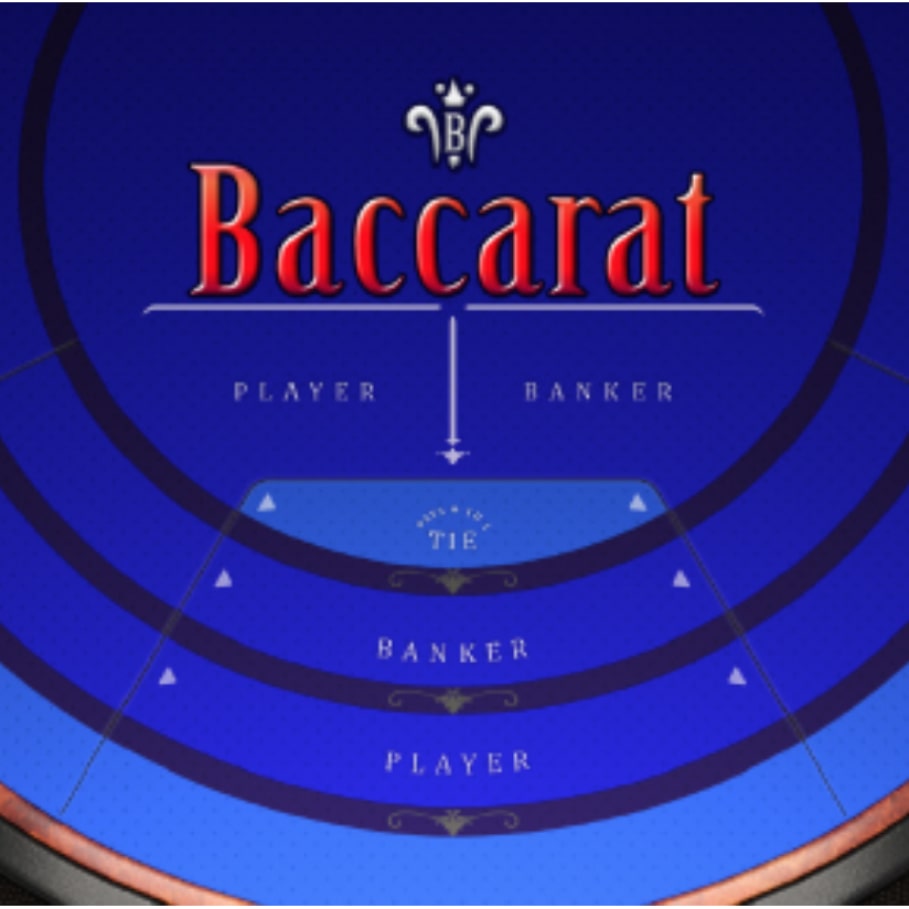Over-Under Bet: Definition Types and Examples
Over-under bets, or total bets, are a wager that the point total for a game will be larger or smaller than a sportsbook predicts. Learn more about this type of gambling. ByMatt Ryan WebberFull Bio Matt Webber is an experienced personal finance writer, researcher, and editor. He has published widely on personal finance, marketing, and the impact of technology on contemporary arts and culture. Learn about our editorial policiesUpdated February 07, 2024Reviewed byPamela RodriguezFact checked byTimothy LiFact checked byTimothy LiFull Bio- Timothy Li is a consultant, accountant, and finance manager with an MBA from USC and over 15 years of corporate finance experience. Timothy has helped provide CEOs and CFOs with deep-dive analytics, providing beautiful stories behind the numbers, graphs, and financial models. Learn about our editorial policies - In sports betting, an over-under bet is a bet on whether a specific statistic for a game will be higher or lower than a quoted value. This type of bet is also known as a total bet.
- The most common type of over-under bet is on the combined score of two teams in a match.
- The payout on an over-under bet doesn’t just depend on predicting the score correctly. The odds will also tell you how much the sportsbook will take out of your winnings.
- Gambling always involves a negative expected return—the house always has the advantage. Over-under bets go by several names. In the US, it’s common to see this type of bet referred to as a “total,” or abbreviated as O-U. All of these names refer to the same type of bet, though. In an over-under bet, a sportsbook will predict a number for a given game. Most commonly, this is the total number of points that will be scored. Bettors will then wager that the actual number will be higher or lower than this prediction. With this type of bet, you are not trying to predict the actual score of a match. Instead, you might feel that there will be more points scored than the sportsbook is predicting, or fewer. The best way to understand this is with a simple example. Let’s say the Team A-Team B total is 54 in a National Football League (NFL) game. This is a high total for the NFL, and you might think that the defensive strength of these teams will prevent that many points from being scored. You would therefore place an over-under bet that the score will be lower. Then:
- If Team A wins 24-20 (44 points), you win
- If Team B wins 34-24 (58 points), you lose In the rare case that a score is exactly the same as the quoted value, the bet is called a push, and all over-under bets are refunded. Though this bet is most commonly made with the combined score of the two teams, many other statistics can be used, including:
- In American football, a player’s or team’s total rushing yards or attempts, down conversions (first or third), interceptions, completions, field goal percentage, etc.
- In basketball, a player’s or team’s total assists, blocks, turnovers, steals, etc.
- In baseball, a player’s or team’s total number of home runs, RBIs, etc. Over-under bets are popular with people who are new to sports gambling because they work in a simple way. Over-under bets are among the most popular wagering options in sports betting,behind point spreads and moneyline bets. They are also easier for the beginner to understand than teaser bets. Over-under bets can be good for beginners, says Steven Petrella, deputy editor of The Action Network, a sports media company, and in some ways might be better than point spreads or moneylines because they’re more intuitive. “All you need to decide is whether or not a game will go over or under a set number of points,” Petrella explains, and this “gives you a rooting interest in all aspects of the game.”
Important
Though over-under bets can relate to a wide variety of statistics, the most popular is the total points scored. If someone refers to “the over-under” in an NFL game, they’re likely referring to the total points scored. Though over-under bets can relate to a wide variety of statistics, the most popular is the total points scored. If someone refers to “the over-under” in an NFL game, they’re likely referring to the total points scored.
Understanding Over-Under Bets
In order to understand how to use over-under bets, it’s instructive to see what they look like from the perspective of a sportsbook. The aim of a sportsbook is to have an equal number of bets on either side of the over-under for a given game. They will therefore post what they think is the most likely value for the over-under. A lot of math goes into predicting the over-under for a given match, Petrella says, but there are two main factors: “pace (on offense) and efficiency (on both offense and defense).” And, like all odds in sports betting, these predictions will change as a betting pattern emerges. “After a few sportsbooks open up the first version of totals for a given sport on a given day,” Petrella says, “sharp bettors influence the lines with their betting action, and then other sportsbooks copy that number.” Sportsbooks will also set the vigorish (or vig) for an over-under bet. This is normally set at 10%. Using American odds, this will result in both outcomes initially being quoted at -110 (which means that bettors must risk $110 to win $100). If the amount bet on both outcomes is exactly even, the money wagered by the losers will be paid to the winners, and the sportsbook will keep the 5% profit.However, sometimes there may be an imbalance between the number of bets on over, and the number on under. In this case, the sportsbook will try to even out the numbers. They can use two strategies to do this:
- Change the over-under value itself. If this was originally 45, and too many people have bet over, it might be adjusted to 46 to encourage others to take the under bet.
- Change the odds. A sportsbook could lower the odds on the under to -105, for instance, and raise those on the over to -115. This will also encourage bettors to go with the under. When it comes to paying out, a standard bet on a total is treated just like a point spread. The sportsbook will take its cut, and then pay out to the winners. The payout on an over-under bet depends on more than just predicting the score correctly. You should also pay attention to the odds (also called the vig or juice) so you know how much that sportsbook will take out of your winnings. The payout on an over-under bet depends on more than just predicting the score correctly. You should also pay attention to the odds (also called the vig or juice) so you know how much that sportsbook will take out of your winnings.
Over-Under Bet: An Example
Imagine a fictional baseball game between Team X and Team Y for which the over-under is initially set at 8 points, and the vigorish at 10%. This means that you would be betting $1.10 for every $1 you want to win. And you’ll win if you correctly predict that the total points scored will be less or more than 8. This will be displayed as -110 odds. The same ratio holds for all bets, so if you bet $11, you’ll win $10. If you risk $55, you’ll win $50, and $110 wins $100. It can get a little more complicated. In lower-scoring sports like baseball, soccer, and hockey, sportsbooks often adjust the juice before the total number. Let’s say our X-Y game has a total of 8.5, but the sportsbook makes its projection closer to 9 than 8. In that case, a sportsbook may make the over -120 and the under +100 to reflect its projection of how the game will go, forcing anyone who bets the over to risk a little bit more because that outcome is slightly more likely. At -120, you’re risking $1.2 for every $1 you want to win, and at +100, you’re risking $1 for every $1 you want to win. If Team X wins 5-3, under bettors win. If they win 6-3, over bettors win. In 2018, the Supreme Court gave U.S. states permission to legalize sports betting if they wish to do so. It is still fully illegal in 8 states, including California, Utah, and Texas. In 2018, the Supreme Court gave U.S. states permission to legalize sports betting if they wish to do so. It is still fully illegal in 8 states, including California, Utah, and Texas.
What Happens If an Over-Under Is Exact?
If the over-under hits on the exact number, that’s called a push. There is no winning bet, and all wagers are refunded to bettors no matter whether they took the over or the under. If the over-under hits on the exact number, that’s called a push. There is no winning bet, and all wagers are refunded to bettors no matter whether they took the over or the under.
Why Do Totals Change In Over-Under Betting?
A sportsbook might change the total to keep the number of over and under bets even. But over-under values also vary historically. In the 2010s, for example, NBA betting totals in the 180s were common. But there has not been an NBA total under 190 since 2017. In the 2016-17 season, the average NBA total was just 210.6—almost 10 points less than the 2019-20 season. A sportsbook might change the total to keep the number of over and under bets even. But over-under values also vary historically. In the 2010s, for example, NBA betting totals in the 180s were common. But there has not been an NBA total under 190 since 2017. In the 2016-17 season, the average NBA total was just 210.6—almost 10 points less than the 2019-20 season.
How Are Totals Made for Over-Under Betting?
There’s a lot that goes into making odds like totals, and it varies by sport. Bookmakers and bettors use many inputs—including how fast each team plays, offensive and defensive efficiency, weather, and more—to create a total. There’s a lot that goes into making odds like totals, and it varies by sport. Bookmakers and bettors use many inputs—including how fast each team plays, offensive and defensive efficiency, weather, and more—to create a total.
The Bottom Line
Over-under bets, also called total bets, are a wager on whether a statistic from a game will be higher or lower than a quoted value. They are most commonly used in relation to the number of points scored in a sports match. Normally, you’ll be betting $1.10 for every $1 you want to win. And you’ll win if you correctly predict that the total points scored will be less or more than the prediction of a sportsbook. As with all sports gambling, you should be careful when using over-under bets. As David Forman, the American Gambling Association’s senior director of research, puts it: “What’s most important is that every bettor takes the time to learn the odd and rules of their wagers and only bet within their budget. Sports betting should be enjoyed purely for fun, not as a money-making opportunity.” This applies to over-under bets as much as to any other type of sports betting. If you or someone you know has a gambling problem, call the National Problem Gambling Helpline at 1-800-522-4700, or visit NCPGambling.org/Chat to chat with a helpline specialist. If you or someone you know has a gambling problem, call the National Problem Gambling Helpline at 1-800-522-4700, or visit NCPGambling.org/Chat to chat with a helpline specialist.
FAQ
What is the origin of the name Roulette?
What is the origin of the name Roulette? The origin of the name “roulette” is French and it means “little wheel”. The name is derived from the fact that the game is played on a small wheel that spins around, with players betting on where the ball will land. The word “roulette” was first used in its current context in the 18th century, although the game itself dates back much earlier.
What is TP in WPT poker?
What is TP in WPT poker? Tournament Points (TPs) are used to buy into VIP tournaments on ClubWPT. All players start with a fixed amount of TPs (500) upon opening a VIP account. They cannot be reloaded, but will be automatically “topped up” once per day.
When and where was the game of roulette first played?
When and where was the game of roulette first played? The game as we know it today first appeared in Paris in 1796, and quickly gained popularity throughout Europe, especially in the casinos of Monte Carlo. The addition of the zero by Francois and Louis Blanc in the mid-19th century helped to increase the house edge and make the game more profitable for casinos.
How to Download WSOP NV
How to Download WSOP NV 1. Visit the WSOP site 2. Locate the download link and click on it 3. When the download completes, run the installation on your device 4. When the installation completes, you can log in with your existing account or register if you do not already have one 5. Make a deposit via the mobile interface to fund your account 6. You will have access to all tournaments and cash games available via the desktop software
Who invented the game of roulette?
Who invented the game of roulette? The exact origins of roulette are a subject of much debate and speculation among historians and gambling enthusiasts. While there is no clear consensus on the game’s inventor, several theories exist regarding its creation. One of the most popular theories is that the game was invented by a French mathematician named Blaise Pascal in the 17th century. According to this theory, Pascal was attempting to develop a perpetual motion machine when he inadvertently created the roulette wheel.
betpawa tz sportybet gal sport betting betpawa tz log in gal sport betting tz sportybet tz betpawa download
This site only collects related articles. Viewing the original, please copy and open the following link:Over-Under Bet: Definition Types and Examples










































































































































































